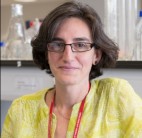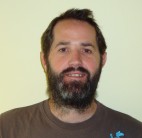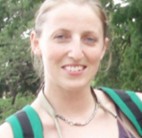Sarah J O’Brien
University of Liverpool
University of Liverpool
Sarah O’Brien is Professor of Infection Epidemiology and Zoonoses. Sarah qualified in Medicine in 1996 at Newcastle University and trained in Public Health Medicine in Oxford and Newcastle-upon-Tyne. She held Consultant positions in Health Protection in Birmingham, Glasgow and London before joining the University of Manchester in 2004. She moved to the University of Liverpool in 2011 to join the Institute of Infection and Global Health.
Sarah has considerable expertise in the epidemiology of infectious diseases, particularly foodborne disease, and was the Chief investigator for the Second Study of Infectious Intestinal Disease. She is currently Chairman of the government’s Advisory Committee on the Microbiological Safety of Food and is a World Health Organisation advisor for the Foodborne Epidemiology Reference Group. Her personal research interests include unravelling the epidemiology of infectious diseases and understanding the contribution of acute infection to chronic illness.
NoVAS: Sarah is the lead investigator for this programme of research. She leads work package 1 and contributes to all other work packages. She chairs the project’s Scientific Steering Committee.
http://www.liv.ac.uk/infection-and-global-health/staff/sarah-obrien/
Angus Knight
(Formerly of) Leatherhead Food Research
(Formerly of) Leatherhead Food Research
Angus Knight obtained his PhD in microbial molecular genetics from Cranfield University in 1986. Following post-doctoral research in at Surrey University on bacterial meningitis and at the National Institute for Medical Research on HIV he joined Leatherhead Food Research in February 1994.
By background Angus is a molecular biologist with extensive experience in the application of molecular techniques to industrial and academic R&D. Angus has held different positions within LFR including responsibility for different departments. He is currently Head of Food Microbiology and Virology. Work at LFR has included the development of confidential contract R&D, collaborative R&D, project management and consultancy across a broad spectrum of activities and for a variety of clients including, industry, venture capital, academia, DEFRA, the EU and the Food Standards Agency.
R&D at LFR has included the development of the first molecular tests for genetically modified food ingredients in the UK, the application of ICT in food manufacturing, and research on quantitative molecular approaches for food authentication. Recent work has focused on interim scientific management for a DNA vaccines company. Angus is a recognized EFSA expert and has acted as a scientific referee for journals and grant applications, and has also acted as an expert witness in the high court. Angus is a member of British Standards Institute CH216 for the developments of standards for disinfectant testing. Angus established food virology research at LFR and has a special interest in the development of methods for predicting virus infectivity without culture. This has resulted in a number of peer-reviewed publications.
NoVAS: Angus is responsible for leading WP2 of the NoVAS project which is investigating if Norovirus detection methods can distinguish infective from non-infective virus particles.
David Lees
Cefas
Cefas
David Lees has more than 30 years experience in human health microbiology including disease diagnosis and monitoring, virological research, algal biotoxin monitoring, statutory related programmes and reference laboratory activities.
He is the senior food safety advisor in the Food Safety group at Cefas Weymouth laboratory, UK. The Food Safety group covers activities associated with; European Regulations on food safety – classification of bivalve mollusc harvesting areas, approval of shellfish purification plants, sanitary surveys and monitoring for algal biotoxins; advice on sewage discharges; and associated applied research on algal biotoxins, faecal pollution of the marine environment, and enteric viruses impacting seafood.
He advises UK Government and European Commission on issues related to bivalve mollusc safety. Cefas Weymouth is the designated UK National (NRL) and European Union Reference Laboratory (EURL) for bacterial and viral contamination of bivalve molluscs. David is Director of the EURL.
NoVAS: David is the lead for Work Package 3 and sits on the Scientific Steering Committee.
Nigel Cook
(Formerly of) Fera
(Formerly of) Fera
Nigel Cook is a graduate of the University of Dundee. After postdoctoral research in the Universities of Aberdeen and Leicester he moved to the Central Science Laboratory (now the Food and Environment Research Agency [Fera] at the Food Science Laboratory, Torry, Aberdeen in September 1994, before relocating to new facilities in York.
At Fera, he studied the transmission of pathogens, particularly enteric viruses, through foods and the environment. He was Coordinator of the European Framework 7 project “Integrated monitoring and control of foodborne viruses in European food supply chains (VITAL)”. He was Chair of COST Action 929 “A European Network for Environmental and Food Virology” from 2006 to 2010. He was a member of various European Food Safety Authority’s Working Groups preparing opinions on the risk of foodborne viruses, and represented the European Communities on the Codex Committee on Food Hygiene Working Group developing Guidelines on the Application of General Principles of Food Hygiene to the Control of Viruses in Food.
He was a member of the UK Advisory Committee on the Microbiological Safety of Food’s Viral Infections Subgroup. He was the founding Editor of the journal “Food and Environmental Virology”, published by Springer Publishing Company.
He is Councillor of the International Association for Food and Environmental Virology. He has a Visiting Professorship at the Katholieke Universiteit Leuven in Belgium.
NoVAS: Nigel leads on Work Package 4 and sits on the Scientific Steering Committee.
Miren Iturriza Gomara
University of Liverpool
University of Liverpool
Miren Iturriza-Gómara MSc PhD FRCPath is Professor in Virology at the University of Liverpool.
Miren graduated in Fundamental Biology from the University of Granada, Spain in 1989, and trained in Clinical Virology in Spain and the UK. Her research in the last 15 years has focussed on enteric viruses, primarily on rotavirus and norovirus infections and in 2009 she was awarded Fellowship of the Royal College of Pathologists in recognition of her published work on the burden of disease associated with enteric pathogens and studies on the molecular epidemiology of enteric viruses.
She obtained a PhD in virology in 2000 whilst working at the Clinical Microbiology and Public Health Laboratory, Addenbrooke’s Hospital, Cambridge and was awarded an MRC Research Training Fellowship in 2001. In 2003 Miren joined the Virus Reference Laboratory, HPA and was appointed Head of the Enteric Virus Unit in 2010.
She moved to the Institute of Infection and Global Health as Senior Lecturer in June 2012. Miren currently leads the rotavirus strain surveillance network EuroRotaNet, is a member of the Laboratory Technical Working Group (TWG) for the WHO Rotavirus Surveillance Network, and of the Rotavirus Classification Working Group.
She has published 120 original scientific papers, 107 of those on gastrointestinal infections and has been invited as keynote speaker on rotavirus and norovirus infections to numerous national and international scientific meetings.
NoVAS: Miren jointly leads Work Package 5 and sits on the Scientifc Steering Committee.
Nicola Elviss
Public Health England
Public Health England
Nicola Elviss is the Unit Head of the PHE Food, Water and Environmental Microbiology Laboratory, London. After studying for a BSc in Biological Sciences with Honours in Microbiology at the University of Edinburgh, Nicola went on to study for a PhD investigating antibiotic resistance in Helicobacter pylori with the Public Health Laboratory Service at the University of Greenwich.
She joined the Health Protection Agency (now PHE) in 2003 as a Research Scientist working with the pathogens Campylobacter species and Salmonella species. In 2006 Nicola became the Lead Scientist for the HPA Food, Water and Environmental Microbiology Laboratory in Leeds, becoming the Unit Head in 2009. In 2010, she moved to be Unit Head at the Food, Water and Environmental Microbiology Laboratory, Birmingham, before taking the same role at the London Laboratory in 2012.
She is a Food Examiner and has broad experience in food- and water-borne pathogen microbiology. Her personal research interests include Campylobacter species, particularly its survival in the food chain from farm to fork, and food-borne viruses and their detection in complex food matrices.
NoVAS: Nicola is joint-leader of Work Package 5, coordinating sampling from catering environments across London.
Andrew Fox
Public Health England
Public Health England
Andrew Fox has been a Consultant Clinical Scientist at Public Health England (formerly the HPA, formerly the PHLS) since 1982.
He trained as microbiologist/immunologist and worked at the HPA Regional laboratory in Manchester until 2006 before being seconded to North West Food, Water and Environmental Microbiology Services Laboratory in 2007 as Public Health Scientist.
He has been Unit Head of HPA Food, Water and Environmental Laboratory, Preston from April 2009 with the formation of the new HPA FW&E network, now PHE Microbiology Services FW&E Microbiology, Preston Laboratory.
His interests include Public Health Microbiology, foodborne infections, molecular diagnostics and epidemiology of infectious diseases. He has researched for many years on Campylobacter and latterly Salmonella and VTEC (Vero cytotoxin-producing Escherichia coli) including E.coli O157.
NoVAS: Andrew is joint-leader of Work Package 5, coordinating sampling from catering environments across the North West of England.
Paul Hunter
University of East Anglia
University of East Anglia
Paul Hunter qualified in medicine and specialised in Medical Microbiology and Communicable Disease Control. After several years working for the UK Public Health Laboratory Service, he was appointed Professor of Health Protection in the Norwich Medical School in 2001. His primary interests are in the diagnosis, treatment and prevention of acute diarrhoeal disease. He is most known for his work on Cryptosporidiosis and on the epidemiology and control of food and water borne disease. In addition Professor Hunter has published on public health impact of climate change, hospital acquired infection, and dengue fever. Professor Hunter’s research has spanned laboratory, field and clinical research. Professor Hunter’s research has included the development and application of microbial typing schemes, genomics, large scale case control and cohort studies, randomised controlled trials and systematic reviews and meta-analyses. As well as work in the UK, he has also conducted research in France, Spain, Puerto Rico, Trinidad, South Africa, Saudi Arabia, Malaysia, Vietnam and Cambodia. He has research collaborations with colleagues in Universities around the world and also with international agencies and NGOs.
Paul has been a member various expert working groups. In the UK this included the Department for the Environment Food and Rural Affairs, the Department of Health and the Food Standards Agency. Internationally this includes the World Health Organization, Organization for Economic Cooperation and Development, European Centre for Disease Control and The United States Environmental Protection Agency. Most recently he has been heavily involved in working with the WHO group producing guidance on Water and Sanitation Issues around the Ebola epidemic.
Paul has written or edited 6 books, 31 chapters in books and over 210 articles in the peer-reviewed literature. According to Google Scholar he has been cited almost 9000 times and his h-index is 48 (February 2015). Over the past 10 years, he has been successful at winning grants totalling about £28million from a variety of sources.
NoVAS: Paul leads on Work Package 6 and sits on the project’s Scientific Steering Committee.
Laura Boyes
(Formerly of) Stericycle ExpertSOLUTIONS
(Formerly of) Stericycle ExpertSOLUTIONS
Laura Boyes is a manager at Stericycle ExpertSOLUTIONS, part of the SRCL family of companies.
After graduating from the University of Reading in 2004 with a BA hons English Literature degree, she operated in various roles within marketing agencies before joining Stericycle in 2009.
As the global leader in product recalls, retrievals, returns, audit and marketing services, Stericycle ExpertSOLUTIONS delivers a suite of offerings to protect consumers, brands and the environment while reducing corporate risk. Please visit Stericycle ExpertSOLUTIONS for more information.
Laura’s current role sees her managing their Retrieval/Quality Assurance team providing the Project Management lead on a wide variety of retrieval/sampling and quality audit projects for many global FMCG clients.
NoVAS: Laura is the lead Project Manager at Stericycle providing sampling support for Work packages 1, 3 and 4.
Stevo Williams
University of Liverpool
University of Liverpool
Steven Williams is a Research Project Manager at University of Liverpool’s Institute of Infection and Global Health. A football loving Journalism graduate with an IT background, Steven has developed a career within the field of project administration and business management having previously worked for British Telecom’s research, design and development division, an internet recruitment company and the Liverpool School of Tropical Medicine’s METRe (Monitoring & Evaluation Technical assistance and Research) group on international public health programmes in low resource countries as diverse as Libya, South Sudan, Uganda, Mongolia and India.
NoVAS: Working with Professor Sarah O’Brien on the Norovirus Attribution Study, Steven, or “Stevo”, is responsible for overseeing the day-to-day management of the project throughout the UK and sits on the Scientific Steering Committee.
Hajo Roozendaal
(Formerly of) Leatherhead Food Research
(Formerly of) Leatherhead Food Research
Hajo Roozendaal (BSc (Hons), PhD, MIFST) has 20 years of combined experience in academia and industry. Initial trained as an Analytical Chemistry analyst in the Netherlands, he worked for LGC as an analyst in the Veterinary Residue group and the Food Chemistry group. He also worked for the Food Safety and in the Nutrition Research unit at the University of Surrey as a teaching and research technician.
He obtained a Bachelors in Biomedical Science from NESCOT in 2007 and a PhD in Applied food technology from the University of Reading in 2012. In 2013 he joined Leatherhead Food Research in the department of Chemistry Research working on a variety of confidential and internal projects, before taking up a secondment in the Food Safety team working on the Norovirus attribution study (NoVAS) under the supervision of Dr Angus Knight.
NoVAS: Hajo contributes to Work Package 2.
James Lowther
Cefas
Cefas
James Lowther has worked since 2002 at the European Union Reference Laboratory (EURL) for monitoring bacteriological and viral contamination of bivalve molluscs based at the Centre for Environment, Fisheries and Aquaculture Science, Weymouth, UK., working in research and routine monitoring of enteric viruses in shellfish. He is leader of the shellfish virology work area responsible for testing shellfish for norovirus and lead researcher on virology projects, including the large scale FSA-funded surveillance project “Investigation into the prevalence, distribution and levels of norovirus titre in oyster harvesting areas in the UK” published in November 2011.
He has authored or co-authored more than 10 peer-reviewed publications on the contamination of bivalve shellfish with norovirus and associated topics, including a number addressing the question of the relationship between PCR results and human health risks.
He is currently leading the CEN TC275/WG6/TAG4 “Viruses in foods” working group responsible for development of the international standard method ISO TS/15216 “Microbiology of food and animal stuffs — Horizontal method for determination of hepatitis A virus and norovirus in food using real-time RT-PCR” and is coordinating the ongoing international validation of this method.
NoVAS: James contributes to development of the sampling plan for oysters within Work Package 1, leads Cefas activities within Work Package 2 looking at viability methods, and will co-ordinate laboratory work and analysis of data for the oyster survey (Work Package 3). He will also contribute to the final report.
Martin D’Agostino
(Formerly of) Fera
(Formerly of) Fera
Martin D’Agostino worked for the Food and Environment Research Agency (Fera) since 1994 before moving Campden BRI to work on foodborne viruses.
His microbiological career began with Kennerty Farm Dairies in Aberdeen (now Robert Wisemans) as a laboratory assistant, until he joined what was the Torry Food Science Laboratory (Central Science Laboratory, MAFF) in 1994, now named the Food and Environment Research Agency as part of Defra.
He has been involved in EU Framework 5, 6 and 7 projects dealing with such areas as Food PCR, Surveillance of Adenovirus and Norovirus in European Bathing waters and more recently has assisted in the coordination of the FP7 project entitled “Integrated monitoring and Control of Foodborne Viruses in European Food Supply Chains” (www.eurovital.org). This has resulted in the accumulation of many European and worldwide contacts from both Academia and Industry related to both food and environmental microbiology.
He has experience of chairing and presenting scientific talks at international scientific meetings and has been author in at least 22 peer reviewed articles including journal manuscripts, several reviews and book chapters related to the detection and implementation of rapid methods for foodborne and environmental human pathogens.
He is currently undertaking a PhD in the area of norovirus attribution.
NoVAS: Martin contributes to Work Package 4.
David James Allen
Public Health England
Public Health England
David Allen is the Head of the Enteric Virus Unit, Virus Reference Department, Microbiology Services, Public Health England (PHE), London.
He studied Virology & Immunology at the University of Warwick and obtained his PhD on the genetic and antigenic variation among human norovirus strains in 2009 from the University of London, studying jointly at The London School of Hygiene & Tropical Medicine and Health Protection Agency.
At Public Health England, David leads the Enteric Virus Unit which provides national laboratory strain surveillance programmes for norovirus, rotavirus and enterovirus, and provides diagnostic and reference services to other Public Health England and NHS laboratories. The Enteric Virus Unit is also involved in national and international outbreak investigations (https://www.gov.uk/enteric-virus-unit-evu-diagnostic-and-reference-services).
David’s current research and development interests include understanding the drivers of genetic and antigenic diversity among circulating enteric virus strains, and the development of new molecular detection and sequenced-based approaches for investigation of cases and outbreaks of disease that are associated with enteric viruses. In particular, this work focuses on how changes to the genome of the virus leads to newly emerging strains that are associated with significant changes in the epidemiology of the virus, and understanding what the impact of these emerging strains is to public health. David is also a collaborator in the NIHR Heath Protection Research Unit for Gastrointestinal Infections.
NoVAS: David is a member of the Scientific Steering Committee for the NoVAS project, and is a collaborator on Work Package 5, which looks at the prevalence of norovirus in the catering environment.
Nicole Gustar
Cefas
Cefas
Nicole Gustar currently works as a molecular virologist in the Food Safety Team within the Aquatic Health and Hygiene division of Cefas.
She has 8 years technical experience at the Cefas microbiology and molecular virology laboratories.
She is the principal laboratory analyst within the virology laboratory and was responsible for delivery of the analysis element of the FSA project “Investigation into the prevalence, distribution and levels of norovirus titre in oyster harvesting areas in the UK” (FS235003).
NoVAS: Nicole contributes to WP1 and WP3 and will be responsible for laboratory analysis as well as contributing to the analysis of data.
Mark Hopkins
Liverpool Clinical Laboratories
Liverpool Clinical Laboratories
Mark Hopkins graduated from University of Cambridge in 1999 with a PhD thesis entitled Characterisation of the human intestinal microbiota: cellular fatty acids and 16S rRNA.
A subsequent postdoc in the Department of Molecular & Cellular Pathology at Ninewells Hospital in Dundee focused on faecal virulence gene expression, carriage and transfer of drug resistant determinants in the faeces, and in situ hybridisations that facilitated imaging of spatial arrangements.
In 2003 Mark took a Clinical Scientist position at the Specialist Virology Centre in Edinburgh to help develop blood borne virus specialist services. He then moved to Liverpool in 2005 where he oversees development of molecular services within Infection at Liverpool Clinical Laboratories (LCL), the largest pathology service provider in Cheshire and Merseyside, formed from the amalgamation of the pathology clinical services and laboratories of the Aintree University Hospital NHS Foundation Trust (AUHT) and the Royal Liverpool and Broadgreen University Hospitals NHS Trust (RLBUHT).
NoVAS: Mark contributes to WP5, with LCL performing virology testing for North West Catering Survey samples.
Helen Clough
University of Liverpool
University of Liverpool
Helen Clough is a statistician who gained a BSc. (Hons) in Mathematics and Statistics and an MSc. in Operational Research from Lancaster University. She then studied for a PhD entitled “Statistical analysis of replicated spatial point patterns” with applications in clinical neuroanatomy again at Lancaster University, and this was awarded in 1998.
She has held a number of postdoctoral positions at the University of Liverpool and subsequently a lectureship in the National Centre for Zoonosis Research, where she developed an interested in Risk Analysis (specificially the use of Bayesian statistical approaches to describing uncertainty in quantitative risk assessment models), statistical issues in food-borne and other infectious gastro-intestinal disease-related research, and statistical problems motivated by the veterinary sciences.
She currently holds a part-time lectureship in the Department of Epidemiology and Population Health at the University of Liverpool.
NoVAS: Helen contributes to Work Package 1. She is currently responsible for the implementation of a systematic review of both the contribution of Norovirus to UK infectious gastrointestinal illness, and the contribution of food and food handlers to the burden of Norovirus-related illness. This includes study screening, data extraction and, where appropriate, the statistical synthesis of data and consideration of associated methodological issues.
Marie McIntyre
University of Liverpool
University of Liverpool
Marie McIntyre is a Post-doctoral Research Epidemiologist at the UoL. With a quantitative background, she graduated with in BSc in Environmental Sciences from the University of East Anglia, and a PhD in Wildlife Epidemiology from Stirling University. Following this she worked as a staff scientist at the then Institute for Animal Health studying Transmissible Spongiform Encephalopathies, and an Epidemiology and Surveillance Scientist at the then Health Protection Agency, followed by undertaking post-doctoral work on numerous multidisciplinary and multinational research projects at UoL
Her current research interests include human, domestic animal and wildlife epidemiology, particularly using eHealth methodologies to aid the identification and collation of information on infectious diseases, particularly zoonotic and emerging infections in One Health approaches; modelling the spatial distribution of diseases using presence-only data; examining potential drivers of human and animal disease including the characteristics for emergence and further transmission; quantifying the impacts of infectious diseases from a One Health perspective; and studying the epidemiology of certain diseases for example gastrointestinal diseases including Norovirus, scrapie, atypical scrapie and Bluetongue virus.
Beyond the University, Marie is involved with the North West Zoonoses Group and is a Committee Member for the Society for Veterinary Epidemiology and Preventive Medicine.
NoVAS: Marie contributes to the Systematic Literature Review on Work Package 1.
Jo Hardstaff
University of Liverpool
University of Liverpool
Joanne Hardstaff is a researcher at the University of Liverpool working on gastroenteritis attributed to Campylobacter and Norovirus.
She has carried out research in epidemiology and disease ecology since 2006 and worked on projects in Amyotrophic Lateral Sclerosis, Bovine tuberculosis, meat inspection, Angiostrongylus vasorum, disease surveillance, bovine viral diarrhoea virus and biosecurity.
NoVAS: Jo contributes to the Systematic Literature Review of Work Package 1.
Vittoria Lutje
Independent Advisor
Independent Advisor
Vittoria Lutje is a self-employed Information Specialist.
She qualified in Veterinary Medicine at the University of Milano, Italy, and has a PhD in immunology from Brunel University, Uxbridge. Vittoria worked for over 10 years at the International Laboratory for Animal Diseases in Nairobi, Kenya, on the immunology of protozoan diseases in livestock.
In 1999 she started work as an Information Specialist at PPL Therapeutics, Edinburgh and then joined the Cochrane Infectious Diseases Group at the Liverpool School of Tropical Medicine (LSTM). Vittoria’s collaborations also include the MRC Social and Public Health Sciences Unit at the University of Glasgow, the British Society for Antimicrobial Chemotherapy, the Centre for Evidence based Health Care at Stellenbosch University, South Africa, and the Department of Global Health at the University of Washington, USA.
Vittoria has participated in the establishment of the Pan African Clinical Trials Registry (PACTR), and her personal research interests include systematic reviews in neglected tropical diseases, the analysis of clinical trials conducted in Africa, and systematic reviews of animal studies.
NoVAS: Vittoria contributes to the Systematic Literature review in Work Package 1.




















